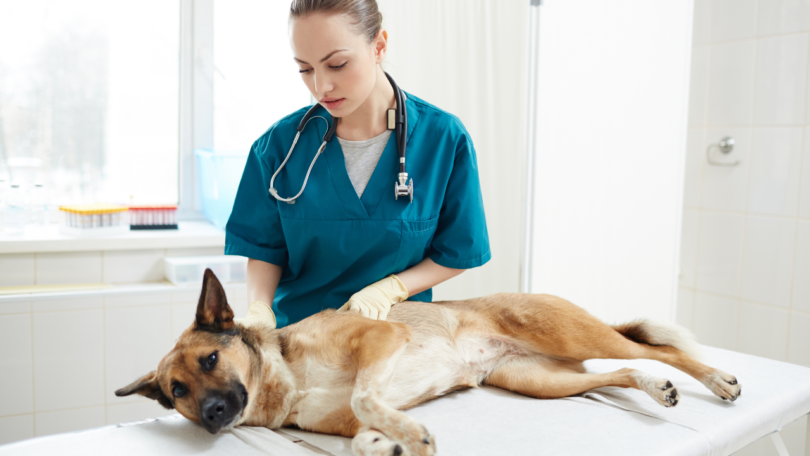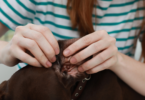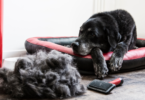Welcome to the wonderful world of caring for special needs dogs! If you've ever found yourself Googling “How to make a doggy wheelchair out of PVC pipe” at 2 AM or explaining to your friends why your three-legged pup is actually the canine version of a superhero, you're in the right place. Caring for a dog with special needs or medical conditions can be challenging, rewarding, and sometimes downright hilarious. So, grab a cup of coffee (or a glass of wine, we don't judge), and let's dive into 10 essential tips that will have your special needs pup living their best life!
1. The Customized Canine Castle: Creating a Safe Haven
Just like how you'd baby-proof a house for a toddler, it's time to special-needs-proof your home for your furry friend. Think of it as creating a doggy paradise where your pup can navigate safely and comfortably.
Key considerations:
– Non-slip flooring (because four legs are tricky enough, let alone three or two!)
– Ramps for easy access to furniture or outdoors
– Padded corners on sharp furniture edges (for the visually impaired pups)
– Designated quiet spaces for dogs with anxiety or sensory issues
One creative dog mom shared, “I turned our living room into a canine obstacle course, complete with ramps, cushioned landings, and even a mini ball pit for sensory stimulation. My friends think I'm crazy, but my partially paralyzed Dachshund thinks he's living in Disneyland!”
Pro tip: Get down on all fours and see your house from your dog's perspective. You might be surprised at what potential hazards you discover!
2. The Nutrition Navigation: Tailoring Diet to Special Needs
When it comes to special needs dogs, one size definitely doesn't fit all in the nutrition department. It's time to put on your chef's hat and get creative with your pup's meals.
Dietary considerations:
– Consult with a veterinary nutritionist for a tailored diet plan
– Consider texture modifications for dogs with dental issues or difficulty swallowing
– Explore supplements for joint health, cognitive function, or other specific needs
– Don't forget about hydration – some conditions require increased fluid intake
One dedicated dog dad confessed, “I spend more time meal prepping for my kidney disease pup than I do for myself. I'm pretty sure he eats better than most humans I know. Gordon Ramsay would be proud… or maybe horrified.”
Remember: Always consult with your vet before making significant changes to your dog's diet. They're the experts, after all!
3. The Exercise Extravaganza: Adapting Physical Activity
Just because your dog has special needs doesn't mean they can't enjoy a good workout. It's all about getting creative and adapting activities to suit their abilities.
Adaptive exercise ideas:
– Hydrotherapy or swimming for low-impact exercise
– Modified fetch games for mobility-impaired dogs
– Scent work or puzzle toys for mental stimulation
– Gentle massage or stretching for dogs with arthritis
One innovative owner of a blind dog shared, “We play ‘sound fetch' with a ball that beeps. My dog's hearing has become so acute, he could probably hear a pin drop in the next county. He's like a furry, four-legged Daredevil!”
4. The Mobility Makeover: Assistive Devices and Adaptations
Welcome to the world of doggy tech! From wheelchairs to prosthetics, there's a whole universe of assistive devices designed to help your special needs pup live their best life.
Mobility aids to consider:
– Custom-fitted wheelchairs for paralyzed or mobility-impaired dogs
– Harnesses with handles for easy lifting and support
– Booties for improved traction or paw protection
– Braces or splints for joint support
One proud pet parent boasted, “My three-legged Pit Bull got a prosthetic limb. Now he struts down the street like he's on a canine catwalk. Move over, supermodels – there's a new top dog in town!”
5. The Medication Mastery: Managing Complex Medical Regimens
If your kitchen counter looks more like a pharmacy than a place to prepare food, you're not alone. Managing medications for a special needs dog can be a full-time job, but with some organization and creativity, you can become a pro.
Medication management tips:
– Use a pill organizer to keep track of daily medications
– Set alarms on your phone for medication times
– Get creative with pill pockets or other tasty disguises for meds
– Keep a detailed log of medications, doses, and any observed side effects
One clever Collie owner admitted, “I've become so good at hiding pills in treats that I'm considering a second career as a magician. My dog thinks he's getting gourmet snacks multiple times a day!”
6. The Grooming Guru: Adapting Hygiene Routines
Keeping your special needs pup clean and comfortable might require some out-of-the-box thinking. It's time to channel your inner spa technician and create a grooming routine that works for your unique dog.
Grooming adaptations:
– Use dry shampoo or wipes for dogs who can't tolerate traditional baths
– Invest in a raised grooming table for easier access
– Consider professional grooming services specializing in special needs dogs
– Pay extra attention to areas prone to skin issues or infections
One resourceful Retriever parent shared, “I turned our walk-in shower into a doggy spa complete with a non-slip mat, handheld sprayer, and even some calming aromatherapy. My dog now gives me the side-eye if the water temperature isn't just right!”
7. The Social Butterfly: Encouraging Positive Interactions
Just because your dog has special needs doesn't mean they can't be the life of the party! Socialization is crucial for all dogs, but it might require some extra thought and preparation for our special pups.
Socialization strategies:
– Arrange playdates with understanding dog owners and compatible pups
– Use a yellow “NERVOUS” or “SPECIAL NEEDS” collar or leash to alert others
– Practice controlled introductions in safe environments
– Educate friends and family on how to interact with your dog
One proud parent of a deaf dog beamed, “We taught our dog hand signals, and now he's the star of the dog park. The other owners think he's some kind of canine genius responding to secret commands. Little do they know, I'm just telling him he's a good boy… repeatedly!”
8. The Sensory Smorgasbord: Enrichment for Special Needs
Keeping your special needs dog mentally stimulated is just as important as physical care. Time to get creative and engage those doggy senses!
Enrichment ideas:
– Scent games for blind dogs (hide treats or toys for them to find)
– Textured toys for dogs with limited vision or mobility
– Sound-based toys for deaf dogs
– Lick mats or slow feeders for dogs with eating difficulties
One imaginative owner of a paralyzed pup shared, “I created a ‘sensory wall' in our hallway with different textures, scents, and even some hidden treats. My dog now army-crawls down that hallway like he's on a secret mission. Mission Impawssible, if you will!”
9. The Vet Visit Victory: Making Medical Care Less Stressful
For many special needs dogs, vet visits are a regular occurrence. Let's turn those dreaded appointments into positive experiences!
Vet visit tips:
– Practice handling and examination at home to desensitize your dog
– Bring familiar items (blanket, toy) to the vet for comfort
– Use calming aids like pheromone sprays or anxiety wraps
– Find a vet experienced with your dog's specific needs
One savvy Spaniel owner confessed, “I started giving my dog ‘spa treatments' at home, complete with gentle handling and mock examinations. Now he trots into the vet's office like he's expecting a luxury pedicure. The vet techs are both amused and impressed!”
10. The Self-Care Savior: Taking Care of the Caregiver
Last but certainly not least, don't forget to take care of yourself! Caring for a special needs dog can be emotionally and physically demanding. Remember, you can't pour from an empty cup.
Self-care strategies:
– Join support groups for owners of special needs pets
– Don't be afraid to ask for help from friends, family, or professional pet sitters
– Take breaks and make time for your own hobbies and relaxation
– Celebrate the small victories and joyful moments with your dog
One wise Weimaraner owner advised, “I learned the hard way that burnout is real. Now, I have a weekly ‘me time' where a pet sitter comes to give me a break. It's made me a better, more patient dog mom. Plus, I think my dog enjoys the change of pace… and probably gossips about me with the sitter!”
Remember, caring for a special needs dog is a journey filled with challenges, triumphs, and lots of unconditional love. Your pup doesn't know they're “different” – to them, they're just living their best life with their favorite human. So embrace the unique adventure you're on, laugh at the mishaps, celebrate the victories (no matter how small), and know that you're doing an amazing job.
As you navigate this special journey, keep in mind the words of animal behaviorist Temple Grandin: “I believe that the best way to create good living conditions for any animal is to base animal welfare programs on the core emotion systems in the brain.” In other words, focus on making your dog happy, comfortable, and loved, and you're already winning at this special needs pet parent game.
So the next time you find yourself MacGyvering a doggy diaper out of duct tape and old t-shirts at midnight, or explaining to your date why your living room looks like a canine physical therapy center, take a moment to give yourself a pat on the back. You're not just a pet owner – you're a superhero in your special needs dog's eyes. And let's be honest, is there any better job in the world?











Leave a Comment